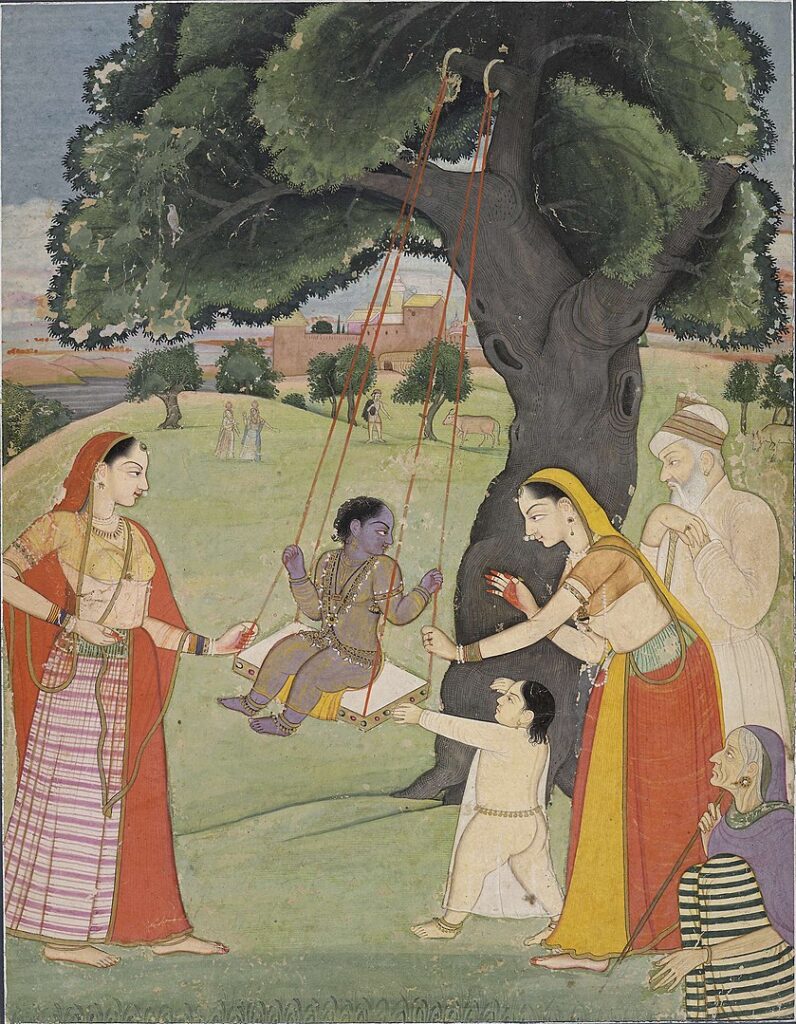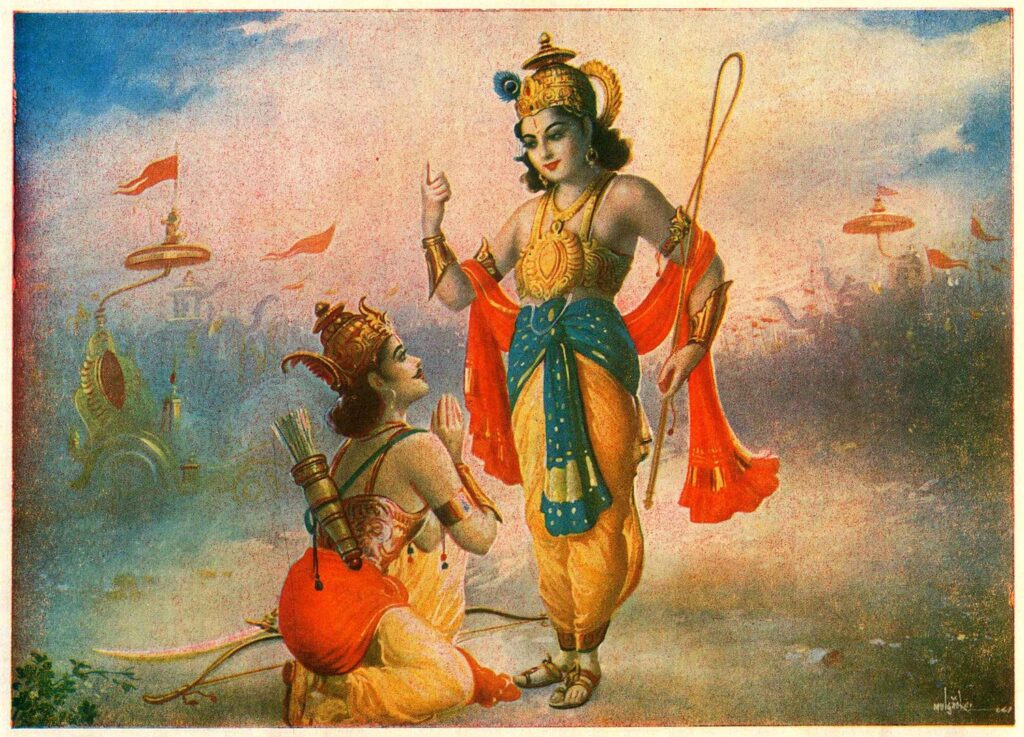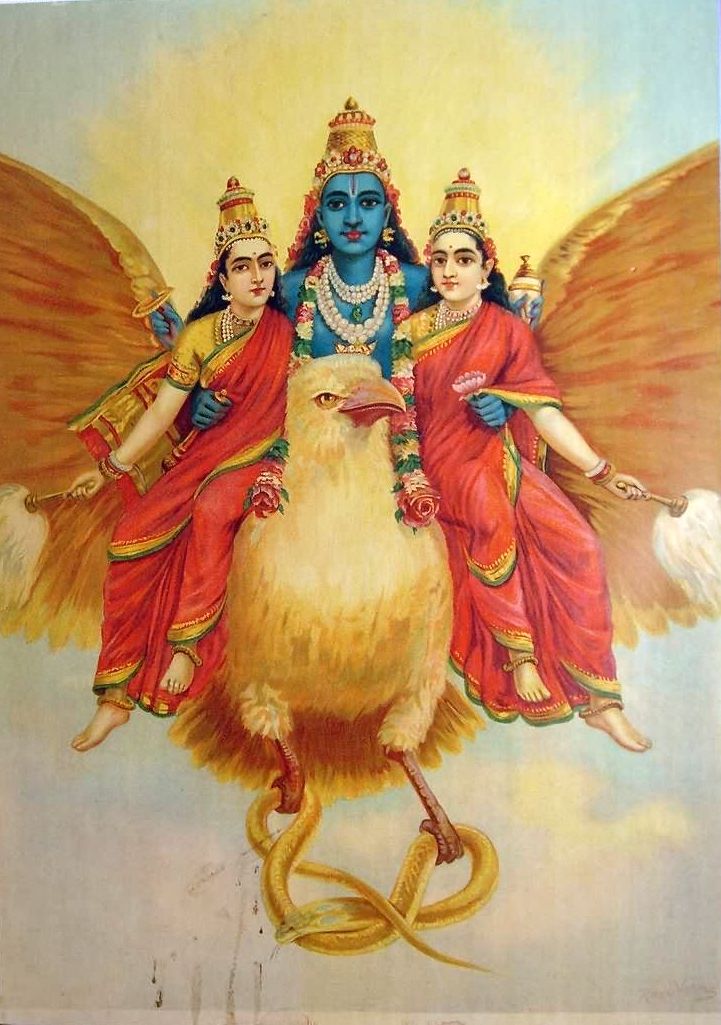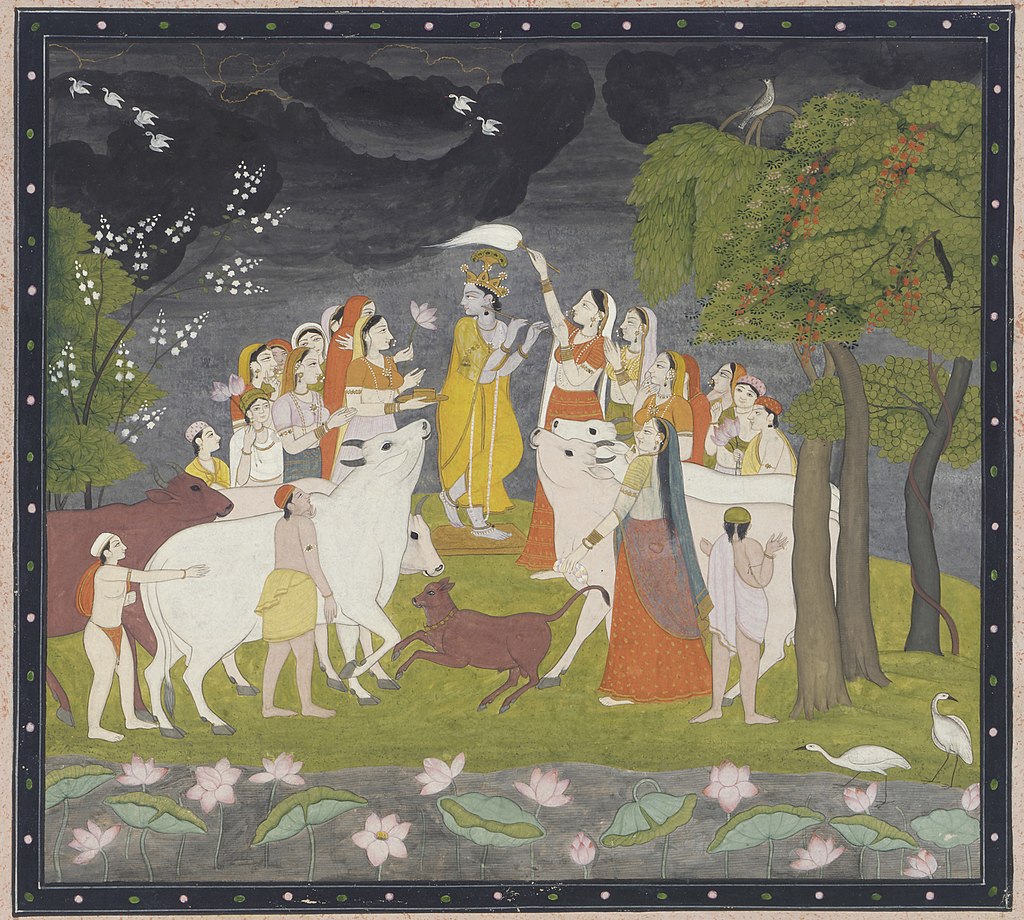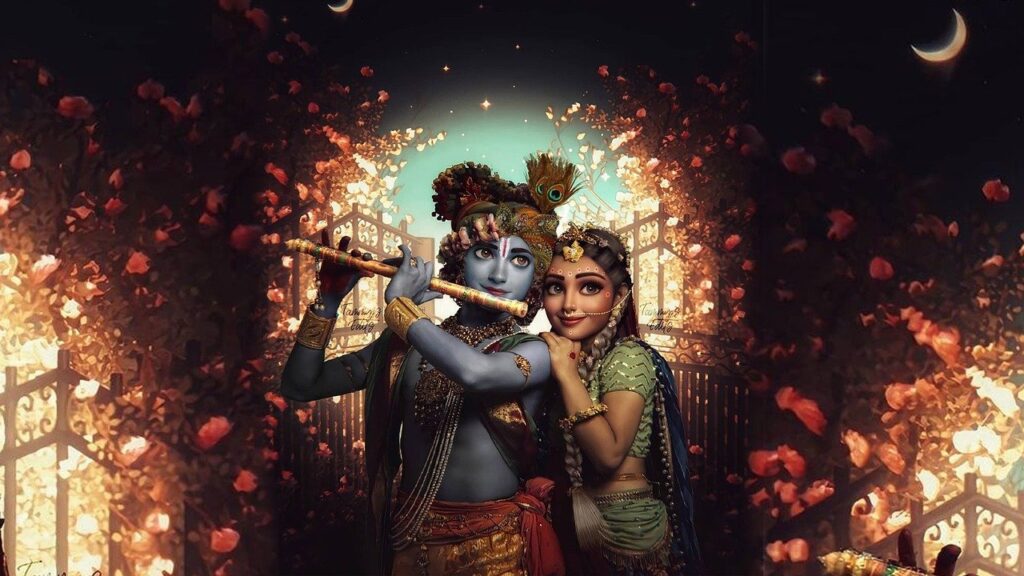
Madhurya Rasa falls within the purview of Krishna Bhajan and constitutes the highest grade of divine Love. It is where a devotee approaches God as His consort. This is unlike the so-called love of this material world where one primarily concerns himself with his/her sensuous pleasures. The distance between the servant and the Lord which was distinctly visible in the cases of Shanta and Dasya Rasas, and indistinctly visible in the case of Sakhya and Vatsalya Rasas, is now completely absent in Madhurya. The servant and the Lord are now united as never before. The servant serves her lord with everything. She lives for her Lord and dies for Him. There is nothing that she cannot do to make Him happy. His pain and grief become her own. Now, the servant cannot enjoy anything which does not make her Lord happy. She takes pleasure in putting on an ornament if it pleases her Lord. She even gladly welcomes death if it is a service unto Him. Such is the selflessness of love manifested in Madhurya. Srimati Radharani and the other Gopis of Vrindavana represent devotees in this category.
Madhurya rasa is also specified as ‘Mukya bhakti rasa’ or the principal of all devotional mellows. Unless one is devoid of all material attachments, one cannot relish the divine mellow of ‘Madhurya’. Madhurya rasa is most esoteric and rare. Hence, it is kept largely confidential. Shanta, Dasya, Sakhya, Vatsalya, and Madhurya exist eternally in Goloka Vrindavan. They are compared to Copper, bell metal, Silver, Gold, and touchstone respectively.
